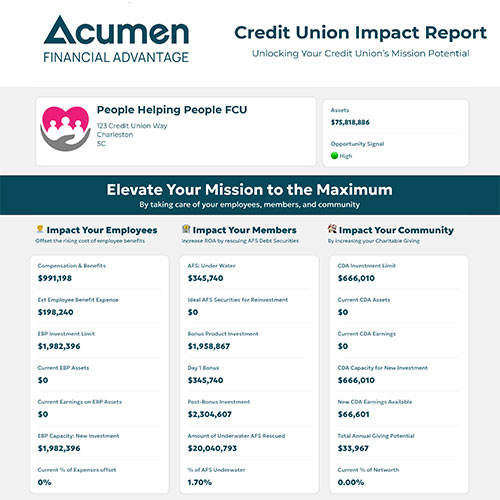NCUA Regulation §701.19
What is NCUA Regulation §701.19?
(And how can it benefit your credit union?)
NCUA Regulation §701.19 governs investments held to fund employee benefit plan obligations. Under this provision, a credit union may hold otherwise impermissible investments if the investment is “directly related” to the credit union’s obligations or potential obligations under an employee benefit plan.
Employees benefit obligations include:
- Defined benefit plan contributions
- 401(k) match contributions
- Employee life insurance expenses
- Employee health insurance expenses
- Deductible long-and short-term disability expenses
- Executive Retirement/Nonqualified plan expenses
Examiner Guidance Considerations:
- Direct relationship test
- Ensure investment income does not exceed projected employee benefit obligations over time
- Thorough due diligence is performed
- Pre-purchase and post-purchase analyses
- Risks and impacts are well-documented
- Board is informed and approved investment objectives and activities
- Reasonable retirement benefits
- Based on size and financial condition of credit union, and duties of employees utilize surveys/peer data
- Risk Management and Performance Reviews
- Credit unions are expected to implement appropriate Board policies and
appropriate investment limits to mitigate risks (i.e., concentration, liquidity,
interest rate, market, credit, etc.) - Ongoing annual risk and financial performance assessments of
investment products, issuers, and third parties will support rationale for
investments and regulatory requirements - State-chartered credit unions
- Determine if state-regulations are in parity with federal regulations or if
additional requirements or limitations must be factored into decision-
making, due diligence, and ongoing risk management activities
- Credit unions are expected to implement appropriate Board policies and
Explore Our Solutions
Discover how Acumen Financial Advantage helps organizations strengthen financial performance, reinforce leadership continuity, and steward resources for long-term value—building durable advantage in service of those you support.

